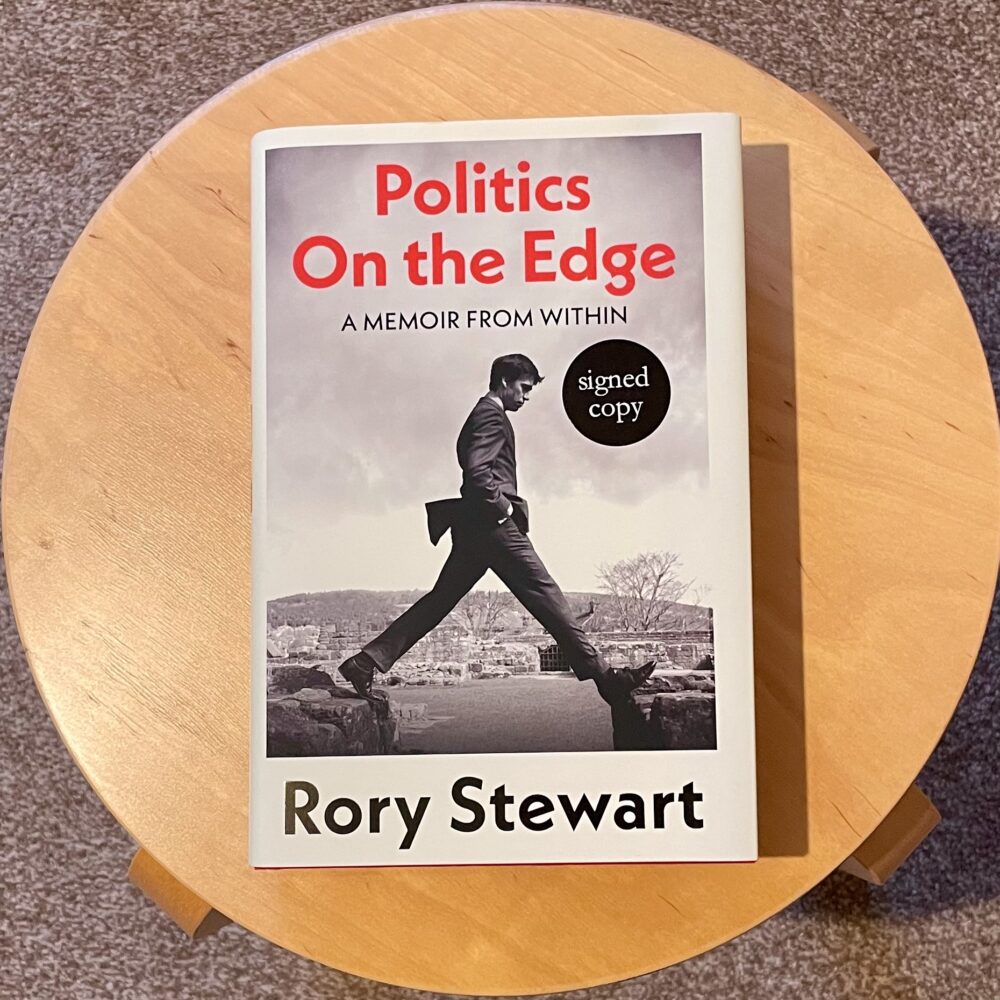‘Politics On the Edge’ by Rory Stewart

This is Rory Stewart’s memoir of his decade as a Conservative MP, from his election campaigns to his Ministerial posts. It is funny, readable, and a little bit gossipy. I think it will come to be viewed as one of the definitive accounts of this bizarre period in Westminster politics and probably one of the best insider takes. It is very well written.
And yet, I found it a little disappointing. I’ve often been impressed by Stewart when I’ve heard him speak on the radio or his podcast, and I’ve come to think of him as an insightful and intelligent political operator. Yet the experience of reading this book was a little similar to reading Hilary Clinton’s account of the 2016 US Presidential Election: I was left with the sense that Stewart lacked the distance and time necessary to properly reflect on his time in Government.
There are lots of examples I could use to illustrate this, but it was his account as the minister responsible for prisons that stuck with me most. He writes with some pride about his successful work to reduce the level of violence through his ‘ten prisons project’, and to improve the basic standards in those ten institutions. He says that he made a difference through extreme and close focus on the basic issues, including involving himself in detailed operational aspects of running individual prisons.
He hasn’t the distance to recognise the two obvious flaws with this approach.
Firstly, driving improvements in a way which is dependent on the actions and attitudes of an individual minister is guaranteed to make those improvements temporary, as successive ministers will choose different approaches and items of focus. To be truly effective, a minister needs to tackle the much harder job of figuring out how to embed a different approach in a system, with a broad coalition of institutional buy-in, so that the improvements outlive the ministerial appointment.
Secondly, inviting ministers to focus on operational detail is dangerous, firstly—and perhaps most importantly—because it leaves a major gap by having no-one focused on wider strategy, and secondly because it invites less thoughtful ministers to drive through absurd operational changes which are unnecessarily damaging to people’s lives. It comes dangerously close to the ‘we’ve had enough of experts’ view of the world which he criticises in passages about his previous experiences outside of politics.
Neither of these flaws necessarily mean that Stewart’s actions weren’t the right ones for the specific circumstance in which he found himself: they may well have been. But Stewart’s tendency to generalise feels misguided, and his often self-critical reflections feel weaker than they ought to because he doesn’t acknowledge—or perhaps doesn’t see—that he’s missing these bigger questions about his approach.
I’m glad I read this book: the insight it offers and the quality of the writing outweigh the problems. I perhaps hope that there will be another volume to come, maybe a decade hence, when Stewart has had a bit more distance and a bit more space to reflect more expansively on his experiences.
This post was filed under: What I've Been Reading, Rory Stewart.